Privatization remains the framework for the power industry in President Marcos’ first year in office. While there are proposals to amend the Electric Power Industry Reform Act of 2001 (EPIRA), they fail to acknowledge the adverse effects of privatization to the power industry, as evidenced by the steady increase in power rates amid unreliability of power supply. Assuming the value of Philippine peso has devalued by half, residential power rates have escalated by 389% from Php 4.87/kWh in 2000 to Php 11.91/kWh as of June 2023.
This is the same privatization framework under which the Marcos administration is hastily pushing for nuclear energy. The pending House Bill 7049, or the proposed Philippine National Nuclear Energy Act, seeks to establish a regulatory agency for nuclear energy despite the current lack of environmental, technological, social, economic, and political assessments that prove the current government’s ability to handle nuclear energy.
The continuing privatization of the Malampaya Service Contract 38 favoring oligarchs close to the Marcos administration also became a hot issue this year. Shell’s exit from the project was a missed opportunity for the nationalization of this substantial source of energy which could have been used for the benefit of the Filipino people. This is amid the decreasing productivity of Malampaya and the increasing reliance on liquefied natural gas imports.
Kaliwa Dam is also being pushed by the Marcos administration despite the strong opposition particularly from indigenous groups and environmental advocates due to its possible destructive social and environmental impacts.
Sources:
[1] https://company.meralco.com.ph/…/june-2023-rates-updates
[2] https://www.philstar.com/…/prime-infrastructure-first…
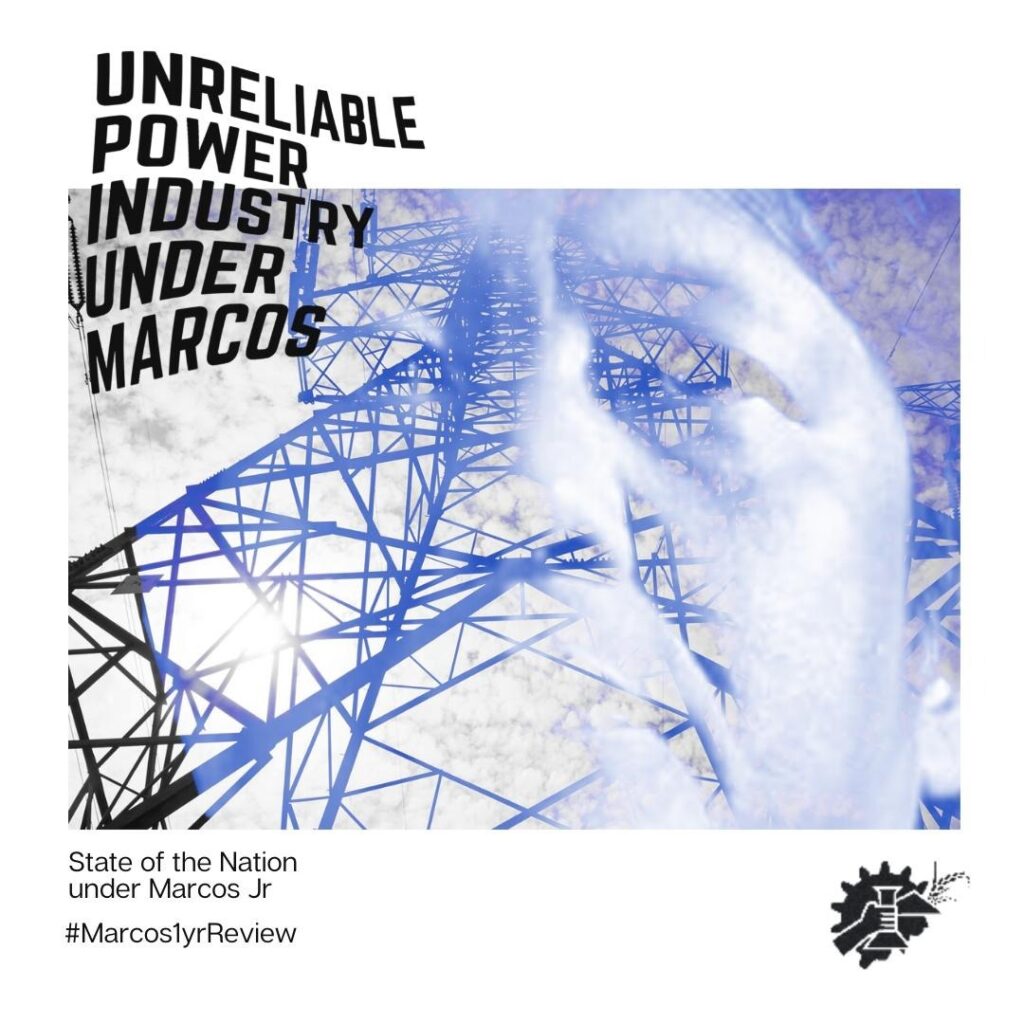
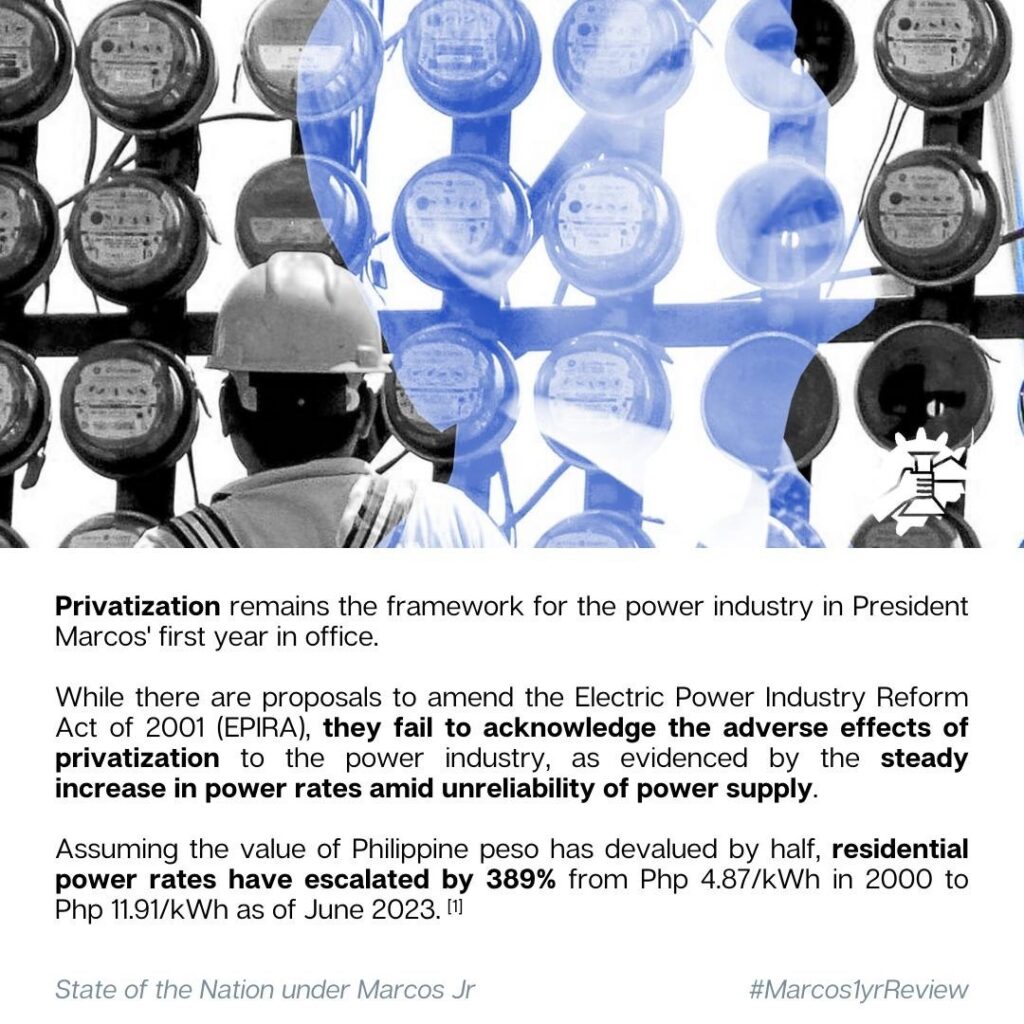
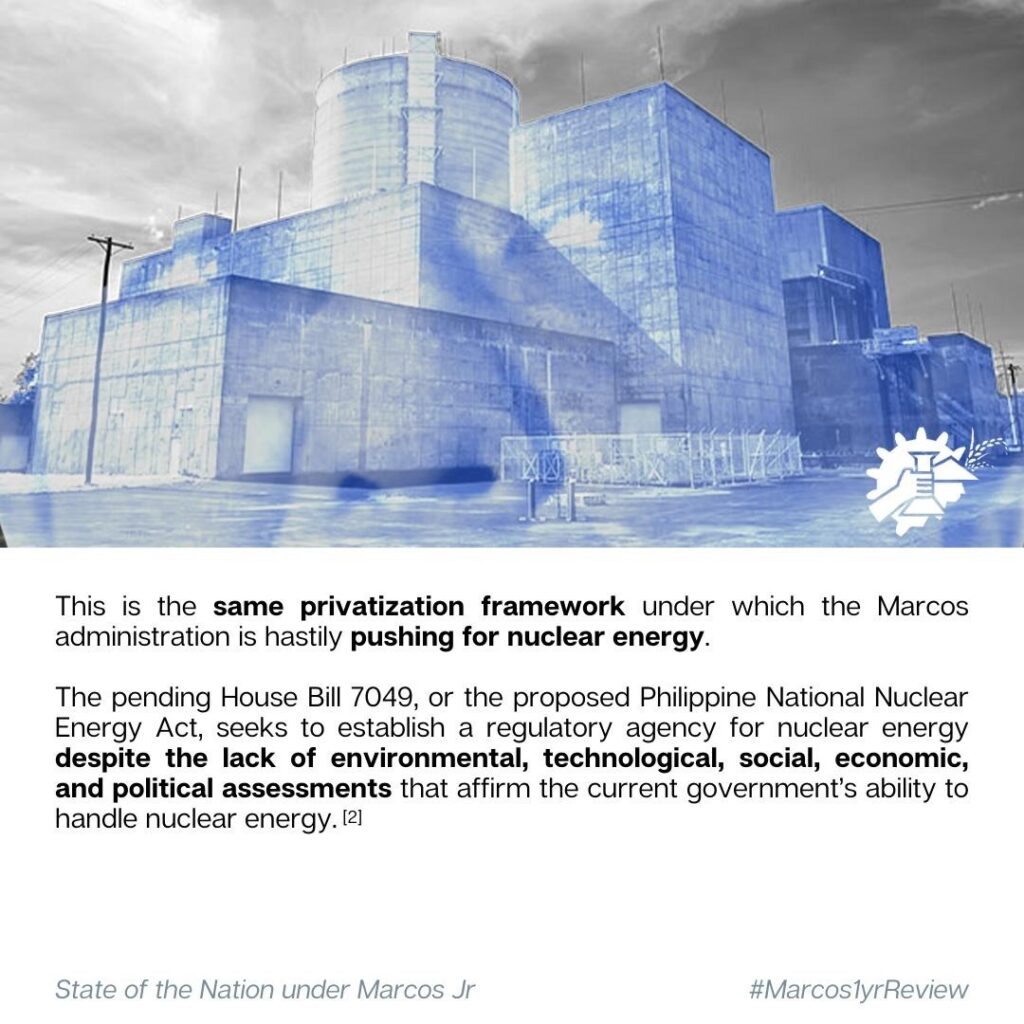
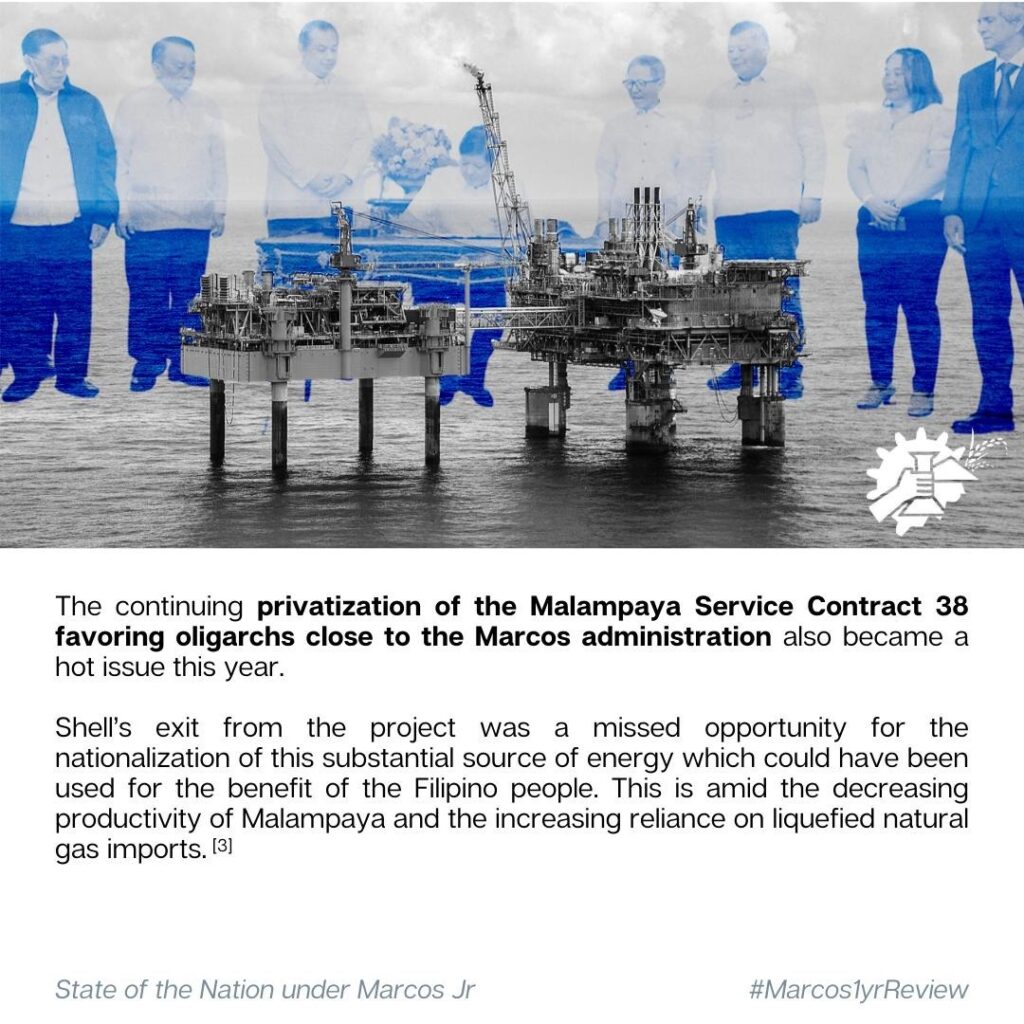
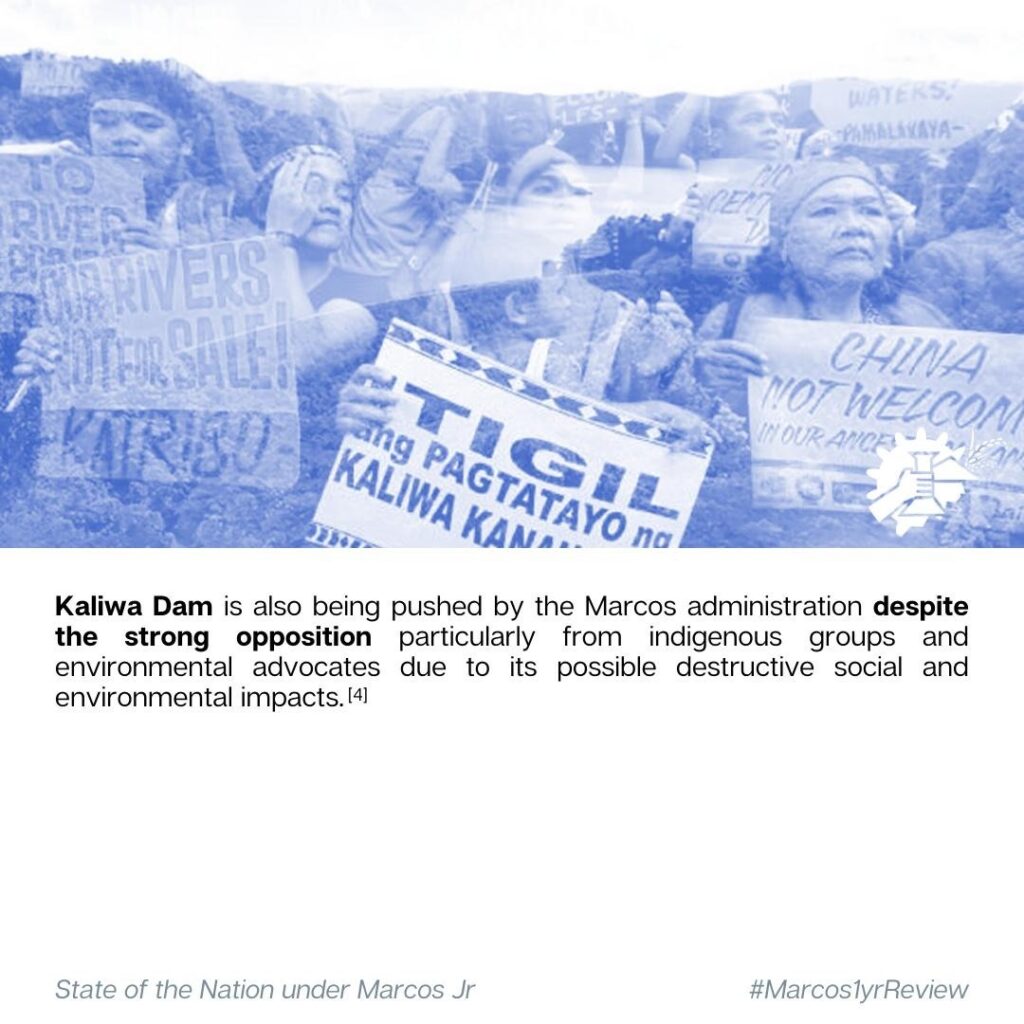

0 Comments